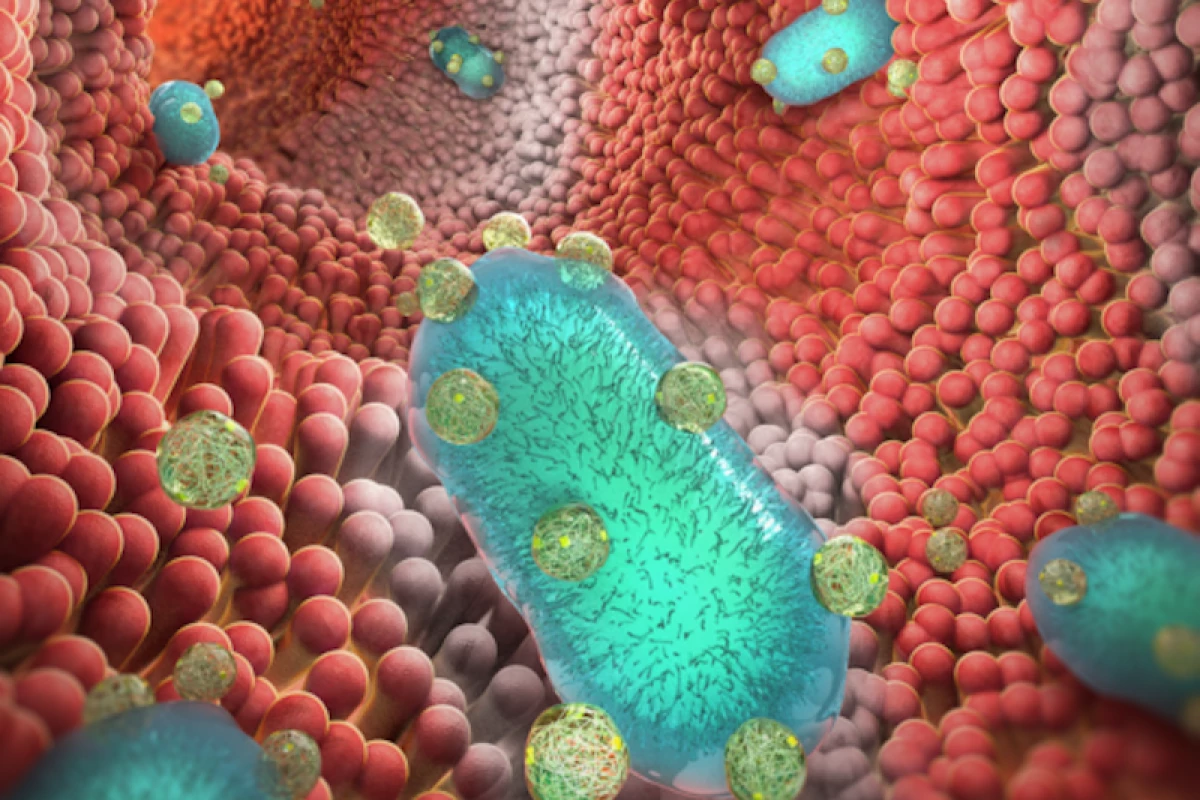Probiotic bacteria can’t help improve gut health if they don’t survive the trip to the intestines. Scientists have now kitted out good bugs with protective armor and backpacks loaded with molecules that can help them treat inflammatory bowel diseases (IBD).
Every one of us harbors a vast ecosystem of bacteria, viruses and other microbes that play key roles in the health of our digestive systems and, as we’re regularly learning, its influence spreads throughout the body. If this microbiome is thrown out of whack, it can contribute to a range of illnesses, including Crohn’s disease, colitis and other forms of IBD.
Probiotics, or good bacteria, are one avenue of treatment being investigated, but when these are delivered orally they can be broken down by stomach acid before they reach the intestines and get to work. So in a previous study, researchers at the University of Wisconsin-Madison developed a thin encapsulating layer that protects them long enough to take hold in the gut.
For the new study, the team investigated whether these protected probiotic bacteria could be given new abilities to fight illnesses like IBD. To do so, they equipped them with “backpacks” that contained two nanoparticles specifically chosen to help treat the symptoms and culprits behind the condition. The first is hyaluronic acid, a powerful anti-inflammatory drug, and the second is sulfide, which directly targets reactive oxygen species, a molecule that can be damaging at high levels and is implicated in IBD.
The team tested this idea in mice with IBD. They gave the mice a probiotic strain of E. coli wrapped in a protective shell and kitted out with the nanoparticle backpacks, and measured the impact on IBD using two metrics – weight changes and colon length, both of which decrease as the disease progresses. Sure enough, the researchers found that mice receiving the full treatment fared significantly better in these metrics than mice that received partial or no treatment.
The team says that this treatment has several advantages. For one, oral delivery is simple and non-invasive. Further, it could be administered at any stage of the disease, rather than existing treatments that focus on certain stages of progression.
“That’s the most exciting part of this research for me,” said Quanyin Hu, lead author of the study. “We didn’t want to target a specific IBD stage. We wanted to select the most important factors that contribute to curing or treating the disease at whatever stage.”
Of course, at this early stage of the research there’s still plenty of work to be done before it could find use in humans. The next steps include testing the technique with other probiotic bacteria species, and checking for side effects.
The research was published in the journal Science Advances.
Source: University of Wisconsin-Madison




